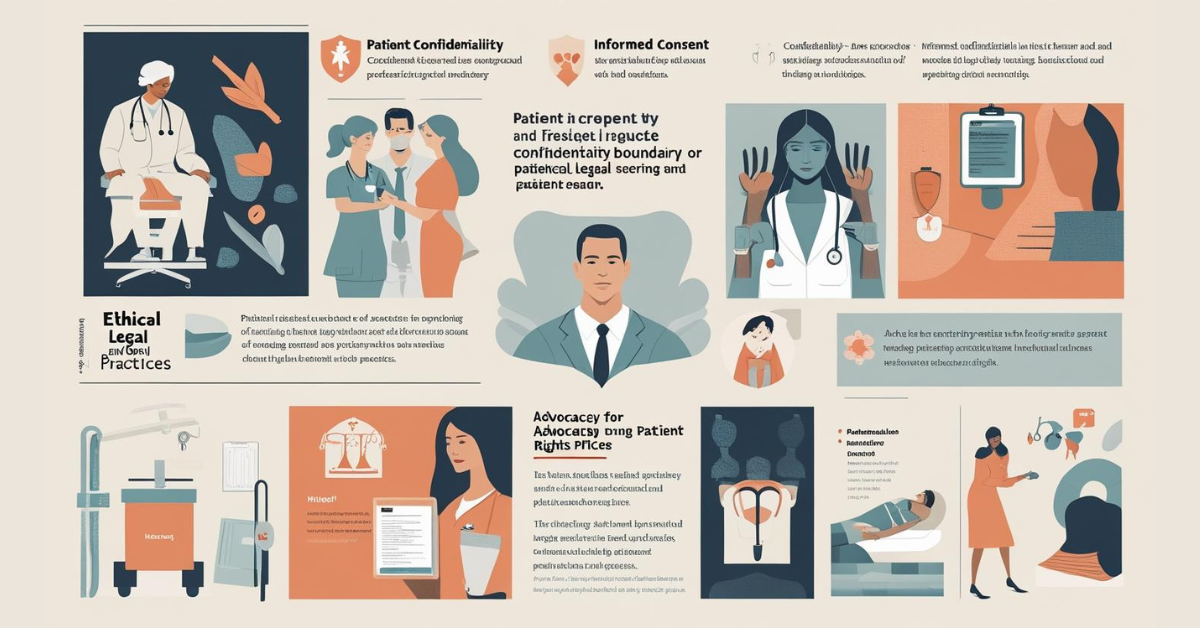The Ethical Theories In Nursing Leadership and Management. By understanding and applying ethical theories and principles, nursing leaders can create a positive and ethical work environment that promotes both patient well-being and staff satisfaction.
What are Ethical Theories In Nursing Leadership and Management
Ethical theories in nursing leadership and management provide a framework for sound decision-making, in accordance with moral principles, that promote positive patient outcomes and a positive organizational culture. These theories support leaders in managing complex situations and foster a work environment that values integrity, respect, and well-being.
Theories
Ethical theories assist nurses in understanding the origin of ethical thinking and behavior in the context of culture and moral norms (Burkhardt & Nathaniel, 2008). Ethical theories do not offer solutions to ethical problems; rather, they provide a guide for nurses at all levels to clarify their personal values and beliefs (Marquis & Huston, 2015).
Although various ethical theories are used in nursing, many experts consider utilitarianism, deontology, and principles as the most relevant to nursing practice (Bandman & Bandman, 2002; Burkhardt & Nathaniel, 2008; Davis, Fowler, & Aroskar, 2010; Joel, 2006; Volbrecht, 2002). These three ethical theories provide the foundation for ethical decision making by nurse leaders and managers.
Consequentialism (Utilitarianism)
Utilitarianism is a form of teleological theory, from the Greek word telos meaning “the end.” The basic premise of utilitarianism is the notion that acting morally should increase human happiness and make the world a better place. The principle of utility provides the foundation of utilitarianism, which assumes it is possible to balance good and bad. Utilitarianism is a theory of consequentialism in which the moral rightness of an action is determined by the consequences of that action (Burkhardt & Nathaniel, 2008; Volbrecht, 2002).
The belief of utilitarians is that increasing happiness means maximizing pleasure and minimizing pain. In other words, the end justifies the means. In nursing, the utilitarian approach is used in situations in which benefits should be maximized for the good of the greatest number of people, such as the funding of health care and the delivery of care (Black, 2014; Davis, Fowler, & Aroskar, 2010).
A drawback to utilitarianism is that, although the goal is the greatest happiness for the greatest number of people, this approach can overlook the rights of an individual. Nurse leaders and managers may rely on a utilitarian approach when establishing staffing schedules, when honoring time-off requests, or in times of high census when determining whom to discharge to make room for patients requiring care that is more acute. Because the emphasis of utilitarianism is to produce the greatest good for the greatest number of people, it is one of the most common ethical approaches used in public health nursing (Butts & Rich, 2013).
Deontology
Deontology comes from the Greek word deon, meaning “that which is obligatory.” The basic premise of deontology is that the rightness or wrongness of an action often depends on the nature of the act rather than the consequences of the act (Burkhardt & Nathaniel, 2008; Davis, Fowler, & Aroskar, 2010).
The principle of duty provides the foundation of deontology, which assumes a person is moral when he or she acts from a sense of duty. Deontology recognizes the dignity and autonomy of individuals and negates paternalism. Deontology supports the notions that all individuals must respect their own humanity and that a person is never to be treated as a means to an end. In nursing, the deontological approach emphasizes truth telling, promise keeping, and being a person of good character (Murray, 2003).
Deontology stresses equal treatment of all people, respect, freedom, and human dignity (Bandman & Bandman, 2002). A drawback to the deontological approach is that it can be rigid and does not assist nurses in choosing alternatives to solve an ethical dilemma (Butts & Rich, 2013). Nurse leaders and managers may rely on a deontological approach when needing to maintain an objective approach to making hiring decisions, making daily staff assignments, and promoting the most qualified staff members.
Principlism
Although utilitarianism and deontology are the predominant theories used to guide nursing practice, neither approach is adequate in all ethical situations at all times. A principle-based approach uses rule-based criteria for conduct that stem from the identification of obligations and duties (Butts & Rich, 2013). Principles are sets of rules, ideals, standards, and values characteristic of a group (Jameton, 1984).
Principlism is a theory in which one or more ethical principles are used to address an ethical issue or dilemma. For example, nurses use the principles of beneficence and nonmaleficence, balancing the benefit of nursing care and avoiding harm to patients, in everyday practice. Nurse leaders and managers apply principlism when they respect the rights, responsibilities, and professional autonomy of their nursing staff members.
Codes of Ethics
A code of ethics is an essential requirement for any profession. It reflects the values and beliefs shared by members, inform the public of the standards of ethical conduct for the profession, and provides rules and principles for self-regulation (Bandman & Bandman, 2002; Burkhardt & Nathaniel, 2008; Guido, 2010).
Codes of ethics specific to nurses include the International Council of Nurses ICN Code of Ethics for Nurses, the Canadian Nurses Association (CAN) Code of Ethics for Registered Nurses, and the ANA Code of Ethics for Nurses With Interpretive Statements. These codes serve as ethical guides for all practicing nurses in all settings.
In reviewing these codes of ethics, it is clear that globally, nursing focuses on respect for patients and their dignity and right to autonomy. Each set of codes is similar in its focus on nursing’s obligation to uphold professional standards, maintain competence, promote patient safety, participate in ongoing lifelong learning, and collaborate with health-care team members. Nurse leaders and managers have an obligation to ensure that nursing care provided by those they supervise reflects the guidelines set forth in the various codes of ethics.
Read More:
https://nurseseducator.com/didactic-and-dialectic-teaching-rationale-for-team-based-learning/
https://nurseseducator.com/high-fidelity-simulation-use-in-nursing-education/
First NCLEX Exam Center In Pakistan From Lahore (Mall of Lahore) to the Global Nursing
Categories of Journals: W, X, Y and Z Category Journal In Nursing Education
AI in Healthcare Content Creation: A Double-Edged Sword and Scary
Social Links:
https://www.facebook.com/nurseseducator/
https://www.instagram.com/nurseseducator/
https://www.pinterest.com/NursesEducator/
https://www.linkedin.com/in/nurseseducator/
https://www.researchgate.net/profile/Afza-Lal-Din
https://scholar.google.com/citations?hl=en&user=F0XY9vQAAAAJ



Hey there, You’ve done a great job. I’ll certainly digg it and for my part suggest to my friends. I am sure they’ll be benefited from this site.
I do agree with all the ideas you have presented in your post. They are really convincing and will certainly work. Still, the posts are very short for beginners. Could you please extend them a bit from next time? Thanks for the post.
This actually answered my downside, thanks!